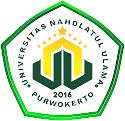Eksistesialisme Menurut Maria Montessori Dalam Pendidikan Anak Usia Dini
Abstract
Little humans have great potential, develop optimally by involving teachers, parents and children. Teachers and parents contribute to early childhood education (PAUD) services applying various lessons and curricula according to their basis. In this study, it examines the idea of existentialism according to Maria Montessori in Early Childhood Education. This study used a library research method which refers to the data sources on Montessori existentialism in early childhood education. Research is empirical and theoretical by examining theories on objects and phenomena that are the focus of research from rational expressions of ideas. The results of the study describe the thoughts of children that have an impact on the training of daily life skills, sensory training, and children's language development. then in the concept of PAUD existentialism according to Maria Montessori emphasizes learning and curriculum through children's experiences that naturally involve the roles of teachers, students, and parents. The impact of Montessori existentialist thinking is respect for the child, the mind that absorbs the child, and the environment that is ready. This has an impact on the substance of Montessori-based existentialism.
References
Ani Oktarina, Maemonah. 2020. “FILSAFAT PENDIDIKAN MARIA MONTESSORI DENGAN TEORI BELAJAR PROGRESIVISME DALAM PENDIDIKAN AUD.” Bunayya : Jurnal Pendidikan Anak 6 (2): 64–88.
Ekawati, Dian. 2017. “EKSISTENSIALISME.” Tarbawiyah: Jurnal Ilmiah Pendidikan 12 (01): 137–53.
Elytasari, Suvidian. 2017. “ESENSI METODE MONTESSORI DALAM PEMBELAJARAN ANAK USIA DINI.” Bunayya : Jurnal Pendidikan Anak 3 (1): 59–73.
Farida, Susan Noor. 2016. “HADIS-HADIS TENTANG PENDIDIKAN (Suatu Telaah Tentang Pentingnya Pendidikan Anak).” Diroyah : Jurnal Studi Ilmu Hadis 1 (1): 35–42. https://doi.org/10.15575/diroyah.v1i1.2053.
Irsad, Muhammad. 2018. “METODE MARIA MONTESSORI DALAM PERSPEKTIF FILSAFAT PENDIDIKAN.” Jurnal Komunikasi Pendidikan 1 (1): 51. https://doi.org/10.32585/jkp.v1i1.16.
Jones, Marianne, and Marilyn Shelton. 2011. Developing Your Portfolio–Enhancing Your Learning and Showing Your Stuff: A Guide for the Early Childhood Student Or Professional. Taylor & Francis.
Jujun S, Suriasumantri. 1985. Filsafat Ilmu. Jakarta: Sinar Harapan.
“MEMAHAMI POLA PERKEMBANGAN BAHASA ANAK DALAM KONTEKS PENDIDIKAN | Adriana | TADRIS: Jurnal Pendidikan Islam.” n.d. Accessed October 24, 2020. http://www.ejournal.stainpamekasan.ac.id/index.php/tadris/article/view/229/220.
Montessori, Maria. 2019. Praxishandbuch der Montessori-Methode. Verlag Herder GmbH.
“Rizky Dewi Anggraini_D98216054.Pdf.” n.d. Accessed October 17, 2020. http://digilib.uinsby.ac.id/44064/2/Rizky%20Dewi%20Anggraini_D98216054.pdf.
Savitri, Ivy Maya. 2019. Montessori for Multiple Intelligences. Bentang Pustaka.
Sugiyono. 2017. Metode Penelitian Kuantitatif, Kualitatif, Dan R&D. Bandung: Alfabeta, CV.
Tomar, Babita. 2014. “Axiology in Teacher Education: Implementation and Challenges.” IOSR Journal of Research & Method in Education 4 (2): 51–54..









.png)

